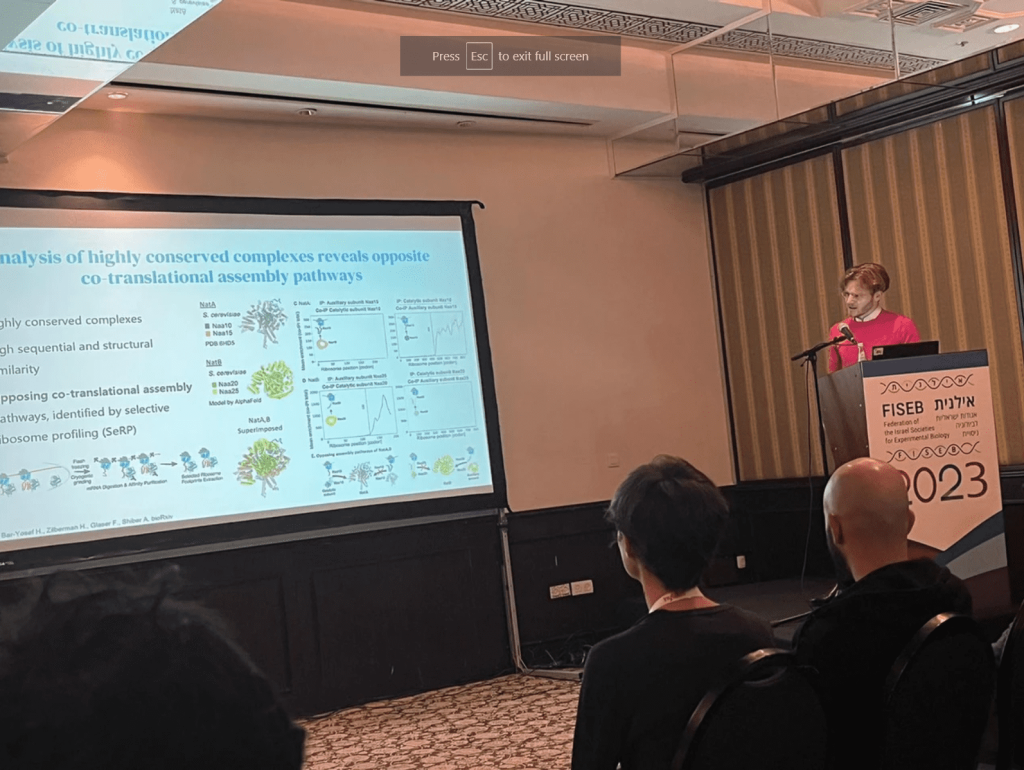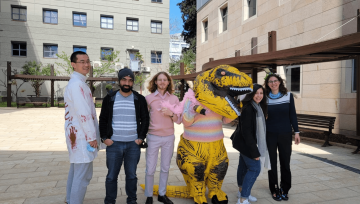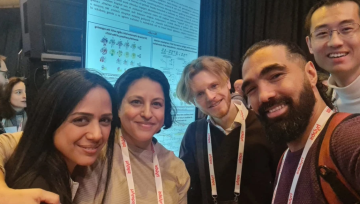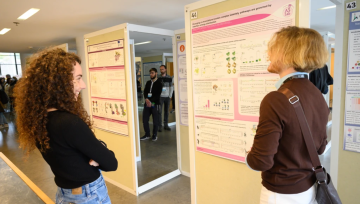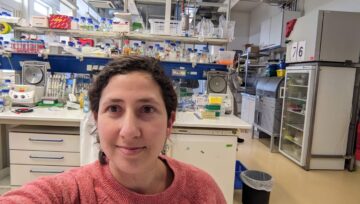SPOTLIGHT ON RESEARCH
PAPER OF THE APRIL 2024
The Committee for Graduate Studies in the Faculty of Biology selects the leading scientific article each month from all the scientific articles published for that month. We are pleased to announce that the winner of April article is Johannes Venezian from Assistant Prof. Ayala Shiber’s lab whose article was published in Nature Communications.
On the occasion of the win, we asked him to provide us with some interesting details about the study, the path that led to the research, and a bit about him.
Hi, could you introduce yourself in a few words?
Originally, I studied Math and Physics for my B.Sc., but always I had a strong passion towards unravelling the mechanisms in nature from which life arise. Science and research fascinated since a very early age.
Could you explain what Asst. Prof. Shiber’s lab is all about?
Our main focus is on protein synthesis, ribosome function, and protein folding. In particular, we focus on the assembly of proteins into complexes. We study the process from various angles, from the RNA level, through protein folding and assembly, and protein stability and degradation.
Could you tell us about your current article/research? What was the main purpose of the research and what did you discover?
The majority of cellular proteins do not function alone but act together as complexes to achieve concerted functions. Despite the prevalence of protein complexes, very little is known about the mechanisms that ensure their correct folding and assembly in the crowded eukaryotic cell. The importance of this folding challenge is underscored by the growing number of diseases caused by misfolded proteins, which are often characterized by aggregation of “lonely”, unassembled complex subunits. When the formation of the complexes is damaged, various diseases may develop, including degenerative diseases such as Alzheimer’s and Parkinson’s. We used innovative methods to capture the proteins in the cell during their synthesis by the ribosome. We combined these experimental methods with advanced molecular dynamics simulations of the protein folding process and creating the interactions between them.
This led to the discovery of a mechanism that protects proteins from misfolding during synthesis. In fact, we found that the process of folding and creating the entire protein complex depends on individual amino acids. Characterization of these amino acids showed that they function as an anchor to initiate interaction with their partner proteins during synthesis. Therefore, these interactions are essential for the proper folding and assembly into a functional complex. Also, if the assembly is interrupted, and these amino acids are left alone, they cause instability of the protein culminating in misfolding. On this basis, we developed a model for the prediction of such essential anchors, which are required to create interaction networks in our cells and protect the cell’s protein synthesis. This model can serve as a basis for designing new proteins.
Can you elaborate on the importance of the discovery? How will it serve you and what directions does it take? What is the application of the discovery (domains, solutions)?
When the formation of the complexes is impaired, various diseases may develop, including neurodegenerative diseases such as Alzheimer’s and Parkinson’s. The results led us to develop a model for predicting energetic anchors essential for protein folding and complex formation. This model can serve as a basis for designing new proteins. Furthermore, focusing on early events, which occur while the proteins are being created, may allow the development of preventive treatments for neurodegenerative diseases.
Name 3 prominent tools that you received in the laboratory during your work and studies.
- Refining critical thinking and the ability to analyze data that I collect in my research and when encountering research in general.
- Planning and conducting experiments – in the short term, at the level of implementing new and unfamiliar protocols, and in the long term in the construction of a work plan based on a research question.
- Academic writing. Construct an article, write and draft it according to academic standards.
When you are not “doing” science, what do you do?
Even in my free time I tend to engage in science, just not necessarily directly related to my research; Whether it’s reading and learning about systems in the body from a more medical perspective or expanding my knowledge in chemistry. Beyond that, I enjoy drawing, sewing, playing the piano, and recently also incorporating sports into my routine.
What are your future plans in terms of your career?
I’m debating between continuing in research but in the industry of drug development or as part of a start-up in the field, or looking for a post-doc position abroad.
➡ A link to the full article: https://www.nature.com/articles/s41467-024-46881-w
➡ A link to the prof. Shiber lab site: https://shiberlab.wixsite.com/shiber
➡ To Prof. Shiber page: https://biology.technion.ac.il/en/member/shiber/






